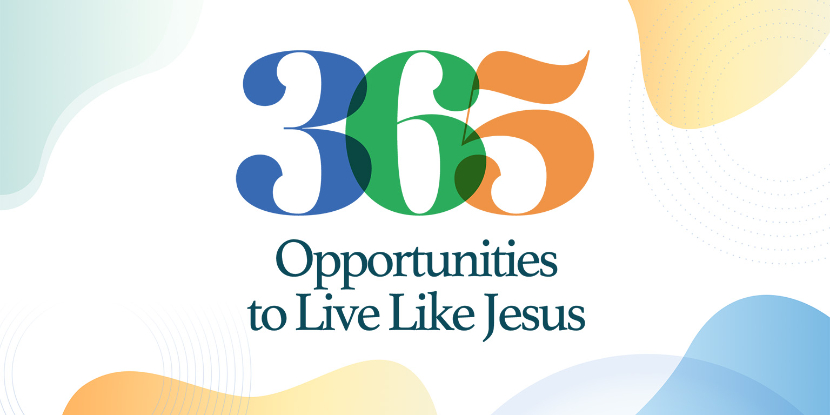From the September 2024 Issue

Online Exclusive: From This Point Forward
Flying by Faith
Pilots call it the “graveyard spin.” It happens like this: A pilot flying at night will carelessly begin a slow bank to the left. The pilot’s senses get used to the spin, and he thinks the spin is less severe than it is. If the pilot begins turning the plane to the right to stop the left spin, he suddenly thinks the plane is spinning to the right. So to stop the right spin, the pilot turns the plane to the left—the direction of the original and continuing spin. If the pilot looks at his gauges, they indicate a left spin. But his body is screaming “right spin.” If the pilot trusts his bodily sensation instead of the instruments, the spin will continue until the plane crashes.
The conflict between what the body senses and an airplane’s actual position is so real—and so dangerous—that commercial airline pilots must receive an Instrument Rating beyond a standard pilot’s license. That means they are able to “fly blind” without the benefit of seeing the horizon, the ground, the stars, or anything else that would help. They have to learn to trust their instruments alone to keep the plane on course.
Everything done by faith, even when sight is lacking, will bear fruit for God.
There is one passage of Scripture that best summarizes how to apply a pilot’s instrument rating to the spiritual life: Proverbs 3:5-6:
Trust in the Lord with all your heart,
And lean not on your own understanding;
In all your ways acknowledge Him,
And He shall direct your paths.
Pilots might call it “flying by faith,” but Scripture calls it “walking by faith.” It’s the same principle Paul expressed in 2 Corinthians 5:7: “For we walk by faith, not by sight.” Just as a pilot has to trust his instruments instead of his feelings when in the dark, we have to trust God when we can’t see the path we are looking for.
So—at 3:05 p.m., you’ve had a horrendous day at work; everything that could have gone wrong has. Or you’ve spent the day herding a child or two or three. It seems you accomplished little more than wiping noses and bottoms, making PB&J sandwiches, settling arguments, and losing your cool a time or two in the process.
Does any of this bear fruit for Christ and His Kingdom? Yes, if you were faithful to what God called you to do. You were a witness at work and a godly influence on your children at home. Everything done by faith, even when sight is lacking, will bear fruit for God.
If Jesus benefitted from training-by-troubles, should we expect anything less?
Training in Faith
When Bob, a World War II fighter pilot, was sent to join the Flying Tigers in China, their mission was to train Chinese pilots to fly and fight against the Japanese. When he, along with one of his Chinese trainees, left their training base in India to fly north to their home base in China, their planes were locked on the radio homing beacon that would guide them safely to the base. Suddenly, somewhere over China, the beacon went out because Japanese planes had locked onto it in an attack on the base. So Bob and his trainee pilot were lost in the sky above China. They got so low on fuel they were forced to belly-land their planes in a rice paddy. Bob survived and spent days finding his way to his destination base. His Chinese trainee pilot did not survive the crash landing.
When the one instrument they had to rely on—a radio beam—was shut off, they were lost. They were flying by sight instead of by “faith,” and they crashed with mortal results. That’s what happens in the spiritual life as well. When we ignore the divine beam that keeps us headed toward our home base—on earth as it is in heaven—the chances of us crashing and burning are great.
When the light grows dim and the sky grows dark, don’t stop! Fly by faith, not by sight. Let your divine guidance system—God and His Word—direct your paths.
And the next time you are going through a turbulent time in your life, ask yourself: “Is this part of God’s instrument training for my spiritual life? Is this an opportunity for me to practice walking by faith instead of by sight?” If pilots have to spend scores of additional hours in instrument training, why shouldn’t we? The psalmist certainly saw the value in such training:
• “Before I was afflicted I went astray, but now I keep Your word” (Psalm 119:67).
• “It is good for me that I have been afflicted, that I may learn Your statutes” (Psalm 119:71).
• “Unless Your law had been my delight, I would then have perished in my affliction” (Psalm 119:92).
If those words about training are not convincing enough, consider the training Jesus endured: “Though He was a Son, yet He learned obedience by the things which He suffered” (Hebrews 5:8). If Jesus benefitted from training-by-troubles, should we expect anything less?
The next time you lose sight of your path, consider it a time to double-down on learning to fly by faith.
Living by Faith
Let’s look at exactly what Proverbs 3:5-6 says about trusting God. Why is such a simple idea sometimes so difficult to accomplish?
• Trust: Human nature says, “I’ll believe it when I see it.” God says, “Believe it—period.” Do we ever get to “see it”? Of course. But the essence of trust is believing God by faith first, then seeing second. If we never see the results of trust, it doesn’t matter. Our confidence is in God.
• Trust without wavering: Trust in the Lord with all your heart. So much of our faith is a partial faith. But James says we are “double-minded” and “unstable” if we mix trust with doubt (James 1:8). Committing all your heart to God comes with practice. So expect to be tested!
• Trust God, not self: “Lean not on your own understanding.” Yes, God gives us minds, and He expects us to use them. But ultimately, our trust is in God. That’s what walking by faith means. Our feelings and understanding change from day to day. God never changes.
• Trust God daily: “In all your ways acknowledge Him.” Not just on special occasions, not just in desperate moments—trust Him in all your ways: “Lord, thank You for this new day. I trust You to guide all my ways, big and small, in this day.”
• Trust the path: “He shall direct your paths.” Step out in faith so God can direct you. (He can’t direct you if you’re sitting still!) Note: paths (plural), not path (singular). I love this plural. God knows all the paths my day and my life will take. He is committed to guiding me in them all.
When the light grows dim and the sky grows dark, don’t stop! Fly by faith, not by sight. Let your divine guidance system—God and His Word—direct your paths.
More Articles
This Month's Magazine Resource

What God Promises You
Using Scripture and powerful, real-life stories, Dr Jeremiah helps you not just understand these promises but also claim them as your own.
Subscribe Now
Each month, read articles and devotionals from Dr David Jeremiah that will encourage, challenge, and strengthen your walk with the Lord.






















